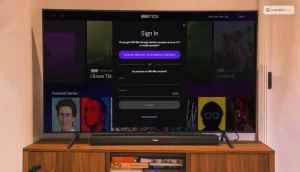Cell phones are a necessary part of life but can also be expensive. Thankfully, there are ways to cut costs.
You’ve probably heard stories about people who have gotten hit with cell phone bills in the thousands.
Wi-Fi Calling
Wi-Fi calling allows you to talk and text on your phone wherever there’s a strong Wi-Fi network connection. It can also get a better signal in areas with poor cellular coverage. This feature is a win-win for both consumers and carriers, as it gives you the flexibility to avoid dropping calls and saves your carrier money by offloading some call traffic from its cellular network.
The person you’re calling or texting doesn’t need special apps to use the service either. Calls and messages routed over Wi-Fi will be seen as regular cellular network calls on their device so that they won’t eat into your data allowance or standard call or text limits.
You can enable Wi-Fi calling on your mobile device by going to the Settings menu or tapping a button on your phone’s screen. Depending on your smartphone model, you’ll likely find the option under Connections, Cellular, or Network & Internet. Once enabled, your phone will automatically connect to a Wi-Fi network during an active call and switch back to the cellular network when it weakens.
Unlimited Talk & Text
There are many ways to shave dollars off your cell phone bill. Sometimes, it takes a little time and energy to review your bill and see how much you spend each month. You might find that you’re paying for data you don’t use, insurance, or other add-ons you don’t need.
You can negotiate your bill, but it may be time to switch providers if that doesn’t work. Thankfully, some great alternatives to big-name carriers offer unlimited talk and text on top of national coverage for a fraction of what you’re used to paying.
Suppose you’re unemployed or participate in a government assistance program such as SNAP, Medicaid, Federal Public Housing Assistance, SSI, or WIC. In that case, you can qualify for Lifeline service in Georgia, a federally funded program that provides free cellular service with unlimited monthly talk, text, and data. Applying only takes a few minutes and could save you hundreds of dollars each year that you can put toward an emergency fund or pay down debt.
No Contract
If you want to negotiate, try talking your way out of your contract. It may be tough to get away with, but some cellular companies are willing to bail you out of your contract and waive termination fees if you switch providers and can prove you have valid reasons for canceling your contract early. These can include poor coverage, dropping calls, or going straight to voicemail and moving out of the service area for that particular provider. This lack of contracts also aligns with the ethos of affordability, making phone service accessible to those who may not want or can commit to extended agreements. Additionally, no-contract options often attract customers who prefer a straightforward and transparent billing process, as they can easily adjust or discontinue their service as needed, reflecting the evolving landscape of modern communication.
You should also look closer at your bill to see if you’re paying for anything you don’t need. You’ll likely be surprised to find unlimited data, 411, emergency roadside assistance, and even “enhanced” voicemail you’re paying for without using. Cut out the services that you don’t use to reduce your bill.
If all else fails, some cellular companies allow you to assume someone else’s contract in exchange for paying the termination fees. This is an Assumption of Liability and can be a great way to cancel your contract without the fees if you can convince your carrier that this is a good move. Be polite and explain your situation to the customer service rep; this approach is more effective than being angry or threatening. You can also mention a recent change to your contract or plan that you didn’t agree with to get the ball rolling.
Bring Your Phone
With smartphone technology changing rapidly, keeping an existing phone and changing carriers is sometimes in your best financial interest. Several free cell phone companies allow you to bring your phone to their network, saving you the cost of a new device.
This service is offered to qualified consumers based on income or participation in certain government programs. Documentation is required to verify eligibility. Saying goodbye to your phone bill and embracing free phone service is a liberating financial move. Switching to a free phone service eliminates those monthly charges that can add up over time. You regain control over your communication costs with no contracts and hidden fees. Free phone services often offer the basics you need, like calling and texting, at no cost, and many provide Wi-Fi calling options for data savings. Some providers offer free or affordable smartphones, easing the upfront expense burden. This shift frees up your budget and ensures that staying connected remains affordable, allowing you to redirect those funds to other priorities.








